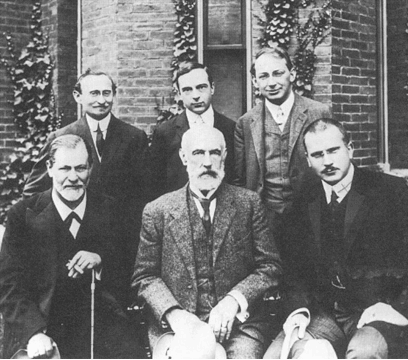 Therip aims to provide a forum for discussion between different schools in the fragmented world of psychoanalysis. Our members include scholars and analysts with divergent views on the history, theory and practice of psychoanalysis. Therip conferences have been occasions where these differences could be aired and debated. Perhaps its most successful endeavours have been The Klein/Lacan Dialogues.
Therip aims to provide a forum for discussion between different schools in the fragmented world of psychoanalysis. Our members include scholars and analysts with divergent views on the history, theory and practice of psychoanalysis. Therip conferences have been occasions where these differences could be aired and debated. Perhaps its most successful endeavours have been The Klein/Lacan Dialogues.
Our current project starts with this web discussion and culminated in a conference in July 2013. We ask Is Dialogue Possible? Are the competing tendencies within psychoanalysis capable of conducting fruitful dialogue? What are the conditions for meaningful debate? Do debates within psychoanalysis have specific characteristics that make these dialogues more problematic than dialogues in others fields? The question of whether dialogue is possible has implications as well for the relationship between analyst and patient, and indeed within each analyst and patient. And beyond psychoanalysis, how can we think about dialogue between disciplines and groups.
Our web discussion starts with a reading of The Need for True Controversies in Psychoanalysis: The Debates on Melanie Klein and Jacques Lacan in the Rio de la Plata, by Ricardo Bernardi, which was published in The International Journal of Psychoanalysis.
Three analysts, Deborah Luepnitz, George Hogenson and Werner Prall engage Ricardo Bernardi in a discussion, which uses his paper as a point of departure. We hope that you will follow the discussion as it develops. In February the web discussion was opened up to other voices and we invite you to take part.
Dr. Bernardi, Dr. Luepnitz, Dr. Hogenson and Dr. Prall continued their dialogue in person at our conference in July.
Click here to begin by looking at Bernardi's original article.
Or click here to view the on-line discussion so far.
Or email your comments or questions about the discussion to
To join in the discussion you need to Register on the website.
Contributions should be up to 1000 words (maximum). If you are responding to specific points made by other contributors, please reference them as Luepnitz - comment one, Prall - comment two etc. Please include your name and affiliation for identification purposes.
We encourage a lively and forthright discussion, but reserve the right to edit contributions appropriately.